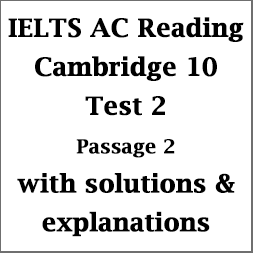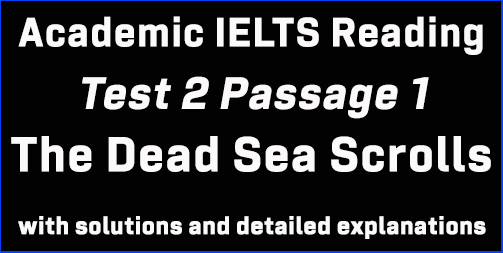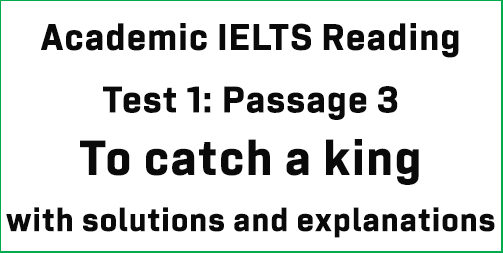IELTS Academic Reading: Cambridge 10; Test 2; Reading Passage 2; Gifted Children and Learning; with best solutions and detailed explanations
This IELTS Academic Reading post focuses on all the solutions for IELTS Cambridge 10 Reading Test 2 Passage 2 which is entitled Gifted Children and Learning. This is an aimed post for candidates who have more problems in finding Reading Answers. This post can direct you the best to comprehend every Reading answer easily. Finding IELTS Reading answers is a gradual process and I hope this post can help you in this respect.

Reading Passage 2:
The headline of the passage: Gifted children and learning
Questions 14-17 (Identifying information):
[This question asks you to find information from the passage and write the number of the paragraph (A, B, C or D … .. ) in the answer sheet. Now, if the question is given in the very first part of the question set, I’d request you not to answer them. It’s mainly because this question will not follow any sequence, and so it will surely kill your time. Rather, you should answer all the other questions first. For this passage, first answer question 4- 13. After finishing with these questions, come to question 1-3. And just like List of Headings, only read the first two lines or last two lines of the expected paragraph initially. If you find the answers, you need not read the middle part. If you don’t find answers yet, you can skim the middle part of the paragraph. Keywords will be a useful matter here.]
Question 14: a reference to the influence of the domestic background on the gifted child.
Keywords for this question: influence, domestic background, gifted child
In paragraph A, the author mentions the importance of ‘home educational provision’ and ‘reported verbal interactions with parents, number of books and activities in their home etc.’ Take a look at the lines 4-6, “For example, a very close positive relationship was found when children’s IQ scores were compared with their home educational provision (Freeman, 2010)”. These suggest the fact that home or domestic background of a gifted child has a great influence on him/her.
So, the answer is: A
Question 15: reference to what can be lost if learners are given too much guidance
Keywords for this question: what can be lost, learners given, too much guidance
Look at lines 2-3 of paragraph D. The author says, “Conversely, teachers who have a tendency to ‘overdirect’ can diminish their gifted pupils’ learning autonomy.” The line means that if a gifted child is ‘overdirected’ / given too much guidance by their teachers, the gifted pupils’/ learners’ autonomy / independence is badly affected.
So, the answer is: D
Question 16: a reference to the damaging effects of anxiety
Keywords for this question: effects, anxiety
In paragraph F, the author directly argues in lines 3-5, “Fear, for example, can limit the development of curiosity, which is a strong force in scientific advance, because it motivates problem-solving behaviour.” So, fear (synonymous to anxiety) has negative effects on the development of curiosity.
So, the answer is: F
Question 17: examples of classroom techniques which favour socially-disadvantaged children
Keywords for this question: techniques, socially-disadvantaged children
Take a look at the last few lines of paragraph D, “There are quite a number of new methods which can help, such as child-initiated learning, ability-peer tutoring, etc. Such practices have been found to be particularly useful for bright children from deprived areas.”
Here, new methods = classroom techniques, favour = found to be particularly useful, socially-disadvantaged children = children from deprived areas.
So, the answer is: D
Questions 18-22 (Matching statements with correct person or people):
(The rules for finding answers to this sort of question are simple. Just find the keywords and read around different names of people or person carefully. Then, give a quick look to check whether there is another statement or idea provided by the same person in the text. If there is, check the reference carefully and decide your answer. Remember, the questions may not follow any sequential order. )
Question 18: Less time can be spent on exercises with gifted pupils who produce accurate work.
Keywords for this question: less time, exercises, gifted pupils, produce accurate work
In paragraph C, we find the results done by Shore and Kanevsky in 1993. The lines say, “If they (the gifted) merely think more quickly, then we need only teach more quickly. If they merely make fewer errors, then we can shorten the practice.”
Here, make fewer errors = produce accurate work, shorten the practice = less time spent on exercises
So, the answer is: B (Shore and Kanevsky)
Question 19: Self-reliance is a valuable tool that helps gifted students reach their goals.
Keywords for this question: self-reliance, valuable tool, reach, goals
In paragraph E, we find the research findings of Simonton in 1988 who came “ . . .. . … to the conclusion that above a certain high level, characteristics such as independence seemed to contribute more to reaching the highest levels of expertise than intellectual skills, due to the great demands of effort and time needed for learning and practice.” The lines suggest that independence or self-reliance contributes more or helps a lot to reach the highest level or goal.
So, the answer is: D (Simonton)
Question 20: Gifted children know how to channel their feelings to assist their learning.
Keywords for this question: channel feelings, assist learning
Take a look at the last lines of the last paragraph, “In Boekaerts’ (1991) review of emotion in the learning of very high IQ and highly achieving children, she found emotional forces in harness. They (which mean the gifted children) were not only curious, but often had a strong desire to control their environment, improve their learning efficiency, and increase their own learning resources.” These lines mean that gifted children actually know to control their learning environment which helps them better to learn more.
Here, emotional forces in harness = channel their feelings, improve their learning efficiency = assist their learning
So, the answer is: E (Boekaerts)
Question 21: The very gifted child benefits from appropriate support from close relatives.
Keywords for this question: benefits, support from close relatives
In paragraph A we find about close relatives’ support from the research of Freeman (2010). Look at lines 7-9, “The higher the children’s IQ scores, especially over IQ 130, the better the quality of their educational backup, measured in terms of reported verbal interactions with parents, number of books and activities in their home, etc.” Here, parents are the close relatives who support gifted children to learn.
So, the answer is: A (Freeman)
Question 22: Really successful students have learnt a considerable amount about their subject.
Keywords for this question: learn, considerable amount, about their subject
In paragraph E, the second and third lines are the findings of Elshout (1995) “… .. individuals who know a great deal about a specific domain will achieve at a higher level than those who do not.”
Here, know a great deal = have learnt a considerable amount, a specific domain = their subject, achieve at a higher level = really successful,
So, the answer is: C (Elshout)
Questions 23-26: (Completing sentences with NO MORE THAN TWO WORDS):
[In this type of question, candidates are asked to write no more than two words to complete sentences on the given topic. For this type of question, first, skim the passage to find the keywords in the paragraph concerned with the answer, and then scan to find the exact word/words.]
Question 23: One study found a strong connection between children’s IQ and the availability of _________ and ________ at home.
Keywords for this answer: connection, children’s IQ, at home
Look at paragraph A where the writer argues that “A very close positive relationship was found when children’s IQ scores were compared with their home educational provision. The higher the children’s IQ scores, especially over IQ 130, the better the quality of their educational backup, measured in terms of reported verbal interactions with parents, number of books and activities in their home, etc.”
Here, A very close positive relationship = a strong connection
So, the answers are: books, activities
Question 24: Children of average ability seem to need more direction from teachers because they do not have ________.
Keywords for this answer: average ability, more direction, they do not have,
In paragraph B, the author mentions in lines 4-7, “There appears to be a qualitative difference in the way the intellectually highly able think, compared with more average-ability or older pupils, for whom external regulation by the teachers often compensates for lack of internal regulation.”
Here, external regulation = more direction, lack of = do not have,
So, the answer is: internal regulation
Question 25: Metacognition involves children understanding their own learning strategies, as well as developing __________.
Keywords for this answer: Metacognition, children understanding, learning strategies, developing,
In paragraph B, “To be at their most effective in their self-regulation, all children can be helped to identify their own ways of learning – metacognition – which include strategies of planning, monitoring, evaluation, and choice of what to learn. Emotional awareness is also part of metacognition, so children should be helped to be aware of their feelings around the area to be learned.”
So, the lines suggest that along with the learning strategies, metacognition includes emotional awareness.
So, the answer is: emotional awareness
Question 26: Teachers who rely on what is known as _________ often produce sets of impressive grades in class tests.
Keywords for this answer: rely on, produce impressive grades, tests,
In paragraph D we find in the first lines talk about teachers’ directing gifted children. Then in lines 3-4 the writer says, “Although ‘spoon-feeding’ can produce extremely high examination results, .. …. .. . ”
Here, extremely high examination results = sets of impressive grades in class tests
So, the answer is: spoon-feeding
Click here for all the solutions to Cambridge 10 Reading test 2 Passage 1
Click here for all the solutions to Cambridge 1o Reading test 2 Passage 3




thanks for the detailed answers!